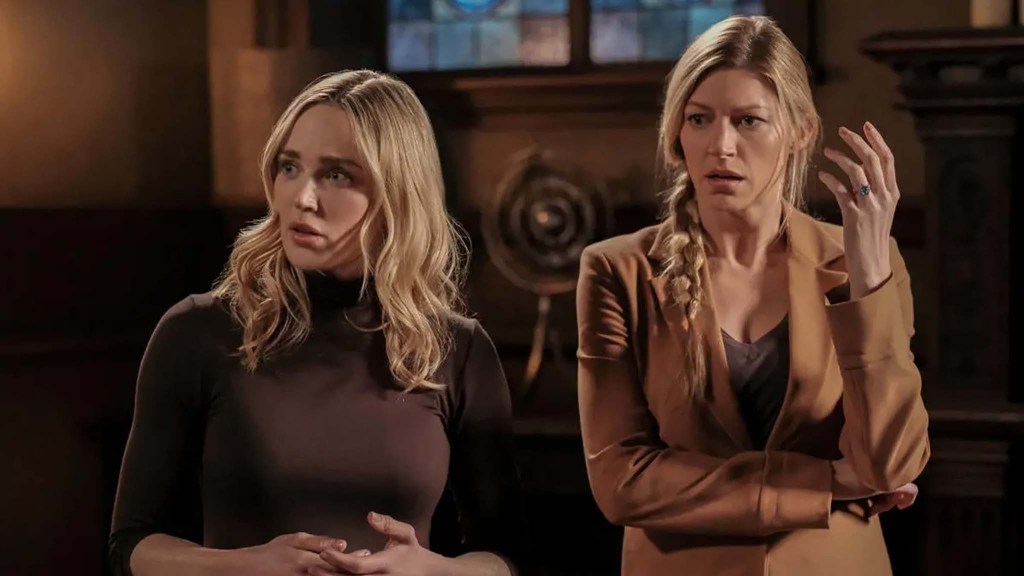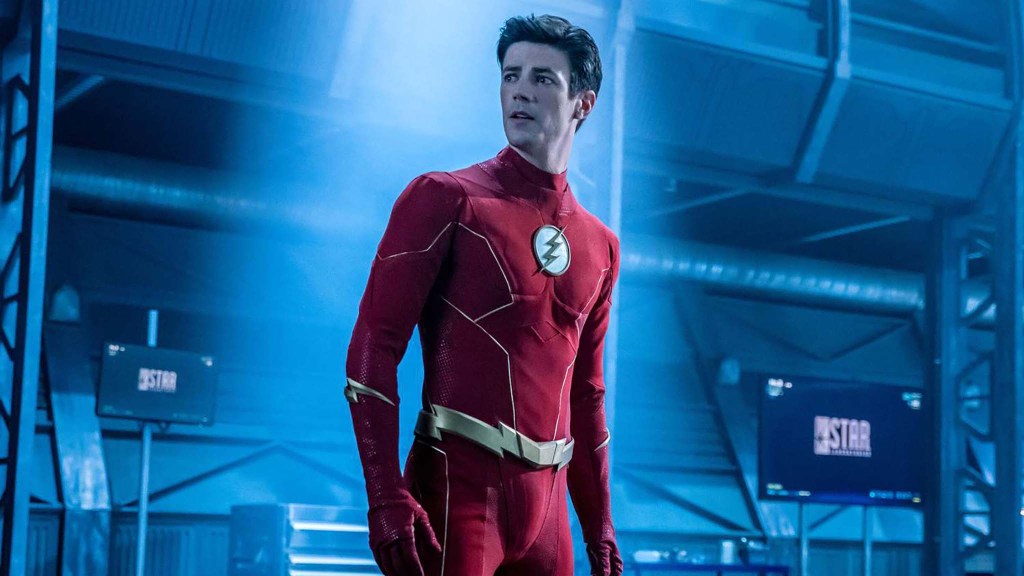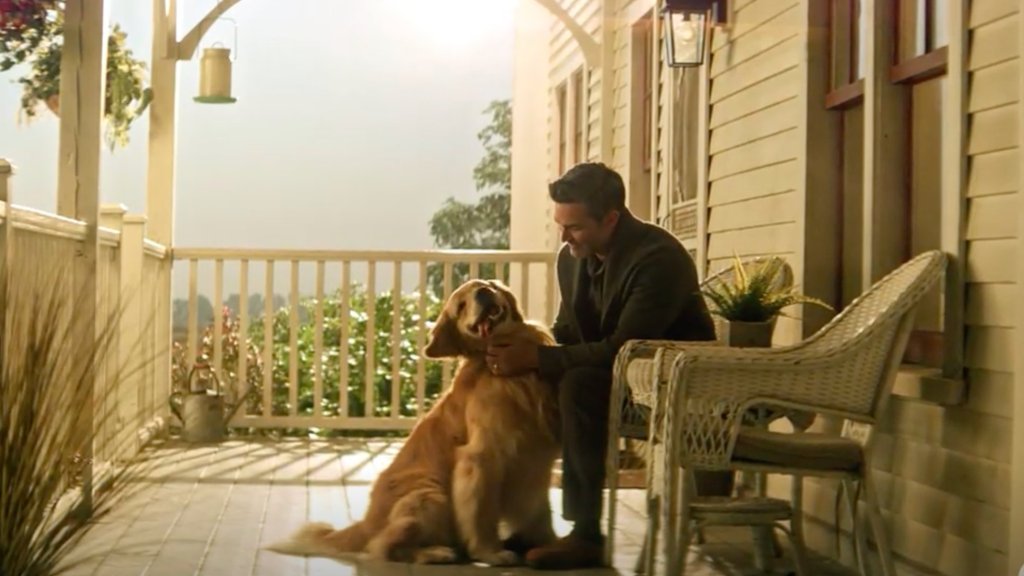This week, The CW’s Arrowverse finally came to an end. For 12 years and across seven television series, the Arrowverse was a defining franchise in live-action superhero entertainment, delivering fresh takes on classic heroes while also finding new and inventive ways to explore iconic comic book stories and give viewers expansive crossovers. For a while, audiences could tune in for a few hours each week to take in the thrill, the adventure, and to come away perhaps uplifted, too. However, for as landmark and as popular as the Arrowverse was at the height of its run, by the time each of the series ended quite a bit had changed both on screen and off, which resulted in each series ultimately signing off with conclusions that left fans mixed. Now, with the network’s final DC show, Superman & Lois, having closed the book, it’s worth taking a moment to ask if the Arrowverse stuck the landing and the short answer is not really.
Videos by ComicBook.com
First, let’s start with how we are defining the Arrowverse. While the overall Arrowverse multiverse ultimately expanded to incorporate almost all of the DC shows on The CW and even a few that didn’t air on the network thanks to the Crisis on Infinite Earths crossover event, for our purposes we’re counting these shows as the Arrowverse: Arrow, The Flash, Supergirl, Legends of Tomorrow, Black Lightning, Batwoman, and Superman & Lois. Superman & Lois gets included in this because, while the series was outside of the main Arrowverse continuity, the version of Clark Kent and Lois Lane that we ultimately got was first introduced in an Arrowverse crossover — specifically the very end of Crisis on Infinite Earths — and series showrunner Todd Helbing has even acknowledged that Superman & Lois’s characters were doppelgangers of their Arrowverse counterparts. Given that, it felt fitting to include the series in our discussion.

Legends of Tomorrow and Batwoman Ran Out of Time
With our parameters set. we need to look at the different series finales and how they contribute to an ending of a franchise that wasn’t quite what it could have been. For two series, it was series finales that were never intended to be the end: Batwoman and Legends of Tomorrow. In the case of both series, they ended on cliffhangers as they were canceled after their season finales aired and while it sort of works for Legends of Tomorrow, that isn’t the case for Batwoman. Batwoman’s finale, “We Having Fun Yet?” teased the arrival (or rather creation) of a new threat — possibly Doctor Phosphorus — after the team saved Gotham City from the Joker. Several of the series’ storylines were also left open and it was generally unsatisfying. As for Legends, while their finale, “Knocked Down, Knocked Up” was very Legends, it also left things in a weird place, not only with the introduction of Booster Gold (Donald Faison), who could have factored into an eighth season, but also saw the Legends arrested, leaving plenty of questions that will never be resolved.
[RELATED: Remembering DC’s Arrowverse & What It Did for Superhero TV]
Arrow and The Flash Had Time, But Didn’t Use It Well
As for the other series, they knew that they were heading into finales far enough in advance to craft a conclusion, but that doesn’t mean they fully worked. In the case of Arrow, its series finale “Fadeout”, while largely a favorite of all the finales for fans, generally functioned kind of as a quiet tying up of loose ends. Oliver Queen actually died during Crisis on Infinite Earths and the penultimate episode of Arrow was used as a backdoor pilot for a series that never happened. That left the actual finale featuring Oliver’s funeral and made some quick reveals about how Oliver changed the timeline — bringing characters back from the dead, making Star City crime free, and giving positive futures for just about everyone else. There was even a moment where Felicity gets to reunite with Oliver in the afterlife that was a nice touch but felt a little hollow. But perhaps the most disappointing thing about the Arrow finale was the tease that Diggle might become Green Lantern — which ended up being another thing that didn’t play out even when revisited on The Flash. Ultimately, Arrow’s finale was okay, but it would have done better had the series not tacked on a backdoor pilot just before it and if it had maybe included more Oliver Queen.

In the case of The Flash, its finale was actually a four-part experience, concluding with “A New World, Part Four: Finale”. The finale resurrected Eddie Thawne and turned him into the avatar of the Negative Speed Force, saw all of the Flash’s speedster enemies come back for a showdown, and generally showed the seams of the previous seasons which themselves had been declining in quality across the board. While there was a really lovely moment at the very end where Barry creates three new speedsters, Caitlin returns, and Iris gives birth to Nora, the series largely wrapped up with Barry using the power of friendship to make peace with Eddie, aka Cobalt Blue. What’s interesting about The Flash finale is that it actually wasn’t the original series finale. The series was not initially expected to be renewed for its ninth season so the Season 8 finale, “Negative, Part Two”, was actually written to be the end. Instead, that ending was changed so that it could lead into the arrival of Cobalt Blue and the tacked-on nature of that entire storyline is evident. Another factor that makes The Flash finale — and by extension the end of the Arrowverse proper — a little less satisfying was that The Flash didn’t actually conclude the whole franchise. Showrunner Eric Wallace thought the franchise would continue. It didn’t and just over a year later, there would be no more DC shows on the network at all.
Black Lightning, Supergirl, and Superman & Lois Deserved Better
That leaves us with three finales and their impact: Black Lightning, Supergirl, and Superman & Lois. Generally, these three finales were decent enough. In terms of Black Lightning, the series finale “The Book of Resurrection: Chapter Two: Closure” did a solid job of wrapping up the series-long conflict between Black Lightning and Tobias Whale while also giving the hero’s family a happily ever after. The biggest problem with Black Lightning’s finale — and indeed, the series overall — is that despite technically being added to the Arrowverse thanks to Crisis, it never really was treated as a full member of the franchise. In the end, at least in terms of how this finale functioned within the greater Arrowverse, it just felt tacked on and both the series and the character deserved better. When it came to the Supergirl finale, “Kara”, it suffered a bit from a pretty weak season overall, but while the series ultimately ended with a reunion of various characters from previous seasons and with Kara revealing her identity to the world, the episode suffered a bit in terms of timing. The episode and the season were filmed in the early post-COVID days which caused its own set of issues with production, issues that in turn sort of diminished the overall impact.

And that leaves us with Superman & Lois. There is no doubt that dedicated fans of the series loved the ending and for good reason. The finale, “It Went By So Fast”, did something that no other live-action Superman series has ever done in that it completely ended the story by revealing Superman’s ultimate fate after a long life. But the episode — and the final season more broadly — suffered from budget limitations, a shortened season order, and the series cramming a lot of story into a very finite amount of space. Like Black Lightning and Supergirl, Superman & Lois’ finale wasn’t bad but the series and fans deserved so much more.
While The CW’s connected universe had a strong start and will be remembered for its impact on superhero television, when taken in sum the franchise’s end was ultimately uneven due to a combination of shows that didn’t get a proper ending, shows that had declined in quality near the end, and others that while heartfelt still felt a little rushed or even overstuffed due to simply not being afforded enough time or episodes to tell their tales. The result is a franchise that left quite a bit on the table, even if it will always have a special place in the hearts of its fans.








